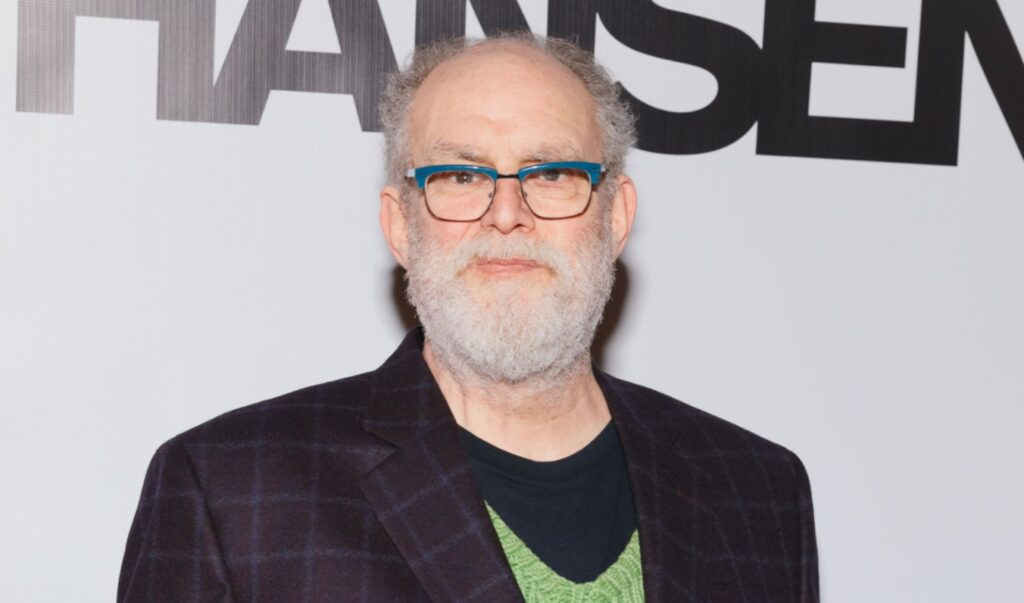William Finn is a celebrated American composer and lyricist known for his emotionally rich, musically bold, and character-driven musicals. He is especially acclaimed for exploring themes such as family, love, identity, and illness through a lens that is both deeply personal and universally resonant.
Quick Bio
| Full Name | William Alan Finn |
|---|---|
| Date of Birth | February 28, 1952 |
| Place of Birth | Boston, Massachusetts, USA |
| Nationality | American |
| Profession | Composer, Lyricist, Writer |
| Genres | Musical Theater, Broadway |
| Known For | Falsettos, A New Brain, Spelling Bee |
| Education | Williams College |
| Major Collaborators | James Lapine |
| Awards | Tony Awards, Drama Desk Awards |
| Sexual Orientation | Openly Gay |
Early Life and Background

William Finn was born on February 28, 1952, in Boston, Massachusetts, and raised in the city of Natick. Growing up in a modest Jewish household, Finn showed an early talent for writing and music. From a young age, he was drawn to storytelling—often combining humor, introspection, and a love for melody. Even before stepping into the world of theater, it was clear that Finn possessed a sharp wit and a powerful emotional voice.
Family and Cultural Roots
Coming from a Jewish-American background, Finn’s cultural and religious identity has played a significant role in shaping both his worldview and artistic voice. His heritage deeply influences the themes and characters in his musicals. In shows like Falsettos, Jewish culture isn’t just a backdrop—it’s central to the characters’ values, conflicts, and language. His upbringing also instilled in him a strong sense of community and family, which often echoes in his most notable works.
Education and Artistic Training

Finn attended Williams College in Massachusetts, a school known for its strong liberal arts focus. While there, he originally intended to study politics but eventually gravitated toward the theater department. He wrote his first musical during college and found a mentor in the form of his professors and theater collaborators. His time at Williams was pivotal, helping him develop his distinctive musical voice and laying the groundwork for his future projects.
Early Career in Theater
After graduating, William Finn began crafting small-scale musicals that were deeply personal and character-focused. One of his earliest works, In Trousers, was a semi-autobiographical musical that set the tone for what would become a trilogy of shows following the life of a character named Marvin. His early productions were staged in intimate venues, but they gained attention for their originality and raw emotional depth.
Breakthrough with In Trousers and March of the Falsettos
In Trousers (1979) marked Finn’s professional debut, introducing the character of Marvin, a neurotic man grappling with love, identity, and sexuality. But it was the follow-up, March of the Falsettos (1981), that truly put Finn on the map. The musical received critical acclaim for its unconventional structure, sharp humor, and unflinching honesty. With lyrics that were biting yet heartfelt, March of the Falsettos stood out in a Broadway scene dominated by more traditional fare.
The Falsettos Trilogy

The three-part Marvin saga—In Trousers, March of the Falsettos, and Falsettoland—eventually became known as the Falsettos Trilogy. These works explore the complexities of modern relationships, gay identity, fatherhood, and the AIDS crisis. Falsettoland (1990) brought closure to Marvin’s story with a blend of humor and heartbreaking poignancy. In 1992, March of the Falsettos and Falsettoland were merged into one production, Falsettos, which debuted on Broadway and won two Tony Awards, solidifying Finn’s status as a groundbreaking voice in musical theater.
Themes and Style in William Finn’s Work
William Finn’s musicals are known for their exploration of personal and universal themes—including love, loss, identity, illness, and resilience. His characters often face emotional and existential challenges, yet his work is filled with humor, warmth, and empathy. Stylistically, his songs are richly melodic, conversational, and lyrically dense, often blurring the lines between dialogue and song. He’s praised for his ability to make audiences laugh and cry—often in the same scene—a testament to his skill as both a composer and lyricist.
Health Struggles and Creative Resilience
In 1992, William Finn was diagnosed with arteriovenous malformation (AVM), a potentially life-threatening brain condition. He underwent risky brain surgery, and the experience became the foundation for one of his most personal works, A New Brain (1998). The musical is a semi-autobiographical story about a composer facing a health crisis and confronting his mortality while trying to complete his life’s work. It became a celebrated example of turning personal trauma into meaningful art, further elevating his reputation for emotional honesty and creative bravery.
Later Works and Collaborations
Following A New Brain, Finn continued to create original and compelling musicals. One of his most beloved later works is The 25th Annual Putnam County Spelling Bee (2005), a quirky, hilarious, and heartfelt show that became a Broadway hit. It introduced his work to a new generation and showcased his talent for ensemble storytelling. Collaborating closely with director and playwright James Lapine, Finn’s body of work expanded to include Elegies: A Song Cycle, which explores grief, memory, and the lives of loved ones lost.
Awards and Recognition
Throughout his career, William Finn has received numerous honors, including two Tony Awards for Best Score and Best Book of a Musical (Falsettos). He has also been recognized with Drama Desk Awards and Outer Critics Circle Awards. These accolades celebrate his contribution to modern American musical theater, particularly his ability to center LGBTQ+ narratives, Jewish identity, and emotionally honest storytelling in his work.
Personal Life and Identity
William Finn is openly gay, and his identity has been a central influence in his writing. At a time when LGBTQ+ voices were largely absent or stereotyped on stage, Finn brought real, complex gay characters to the forefront. He writes not just about sexual orientation but about the human experiences of love, family, and connection, making his work resonate with all audiences. He continues to be an inspiration for queer writers and composers, showing that honesty and vulnerability can lead to artistic greatness.
Conclusion
William Finn is a visionary American composer and lyricist who transformed the landscape of modern musical theater. Through deeply personal storytelling, bold musical compositions, and a willingness to confront difficult subjects, he has created a legacy that continues to influence artists and audiences alike. From the Falsettos Trilogy to A New Brain and Spelling Bee, his work reminds us that art has the power to heal, to challenge, and to connect us to one another in profound ways. As a composer, lyricist, and storyteller, William Finn stands as one of the most vital voices in American theater.
Frequently Asked Question
Who is William Finn?
William Finn is an American composer and lyricist known for Falsettos and The 25th Annual Putnam County Spelling Bee.
What is William Finn famous for?
He is known for his emotionally rich musicals that explore identity, family, and personal growth.
Is William Finn openly gay?
Yes, William Finn is openly gay, and his work often includes LGBTQ+ themes.
What awards has William Finn won?
He has won two Tony Awards and several other theater honors for his musical contributions.
What health condition did William Finn survive?
He survived AVM, a serious brain condition, which inspired his musical A New Brain.
For more Visit VintagePosts











Leave a Reply